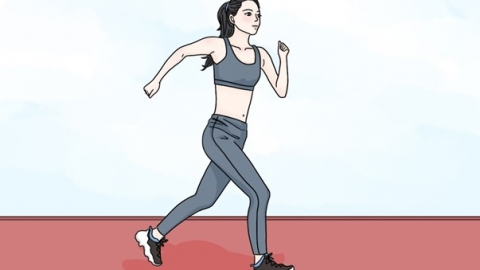How can students lose weight quickly?
Generally speaking, there is no such thing as "quick weight loss." Students are advised to choose healthy weight loss methods such as dietary adjustments, aerobic exercise, strength training, stress reduction, and regular rest. However, the specific effects of weight loss may vary from person to person. The analysis is as follows:

1. Dietary Adjustments
Adjust your diet by consuming more nutrient-rich, low-calorie foods such as vegetables, fruits, and whole grains, while reducing intake of high-calorie, high-fat, and high-sugar foods. Additionally, maintain regular eating habits to avoid overeating, which can be managed by using smaller bowls and plates to control portion sizes.
2. Aerobic Exercise
Remaining seated for prolonged periods or lacking sufficient physical activity reduces the body's calorie expenditure, making obesity more likely. Aim for at least 150 minutes per week of moderate-intensity aerobic exercise, such as brisk walking, jogging, swimming, or cycling.
3. Strength Training
Incorporate strength training into your routine. Exercises such as weightlifting and push-ups can increase muscle mass, boost basal metabolic rate, and help the body burn fat more effectively. Exercise should be increased gradually to avoid starting with high-intensity workouts.
4. Stress Reduction
Excessive psychological stress causes the body to secrete higher levels of cortisol, a hormone that promotes fat synthesis and accumulation. Learning to manage stress and avoiding prolonged periods of high stress is recommended. Stress can be reduced through meditation, yoga, deep breathing, and other relaxation techniques.
5. Regular Rest
Ensuring adequate sleep supports the body's metabolism and hormonal balance. Avoid staying up late, as this can lead to increased cortisol secretion, heightened appetite, and a higher risk of obesity.
While pursuing weight loss, students should prioritize their health, adopt scientifically sound methods, and maintain a healthy lifestyle.









